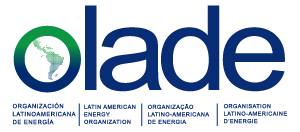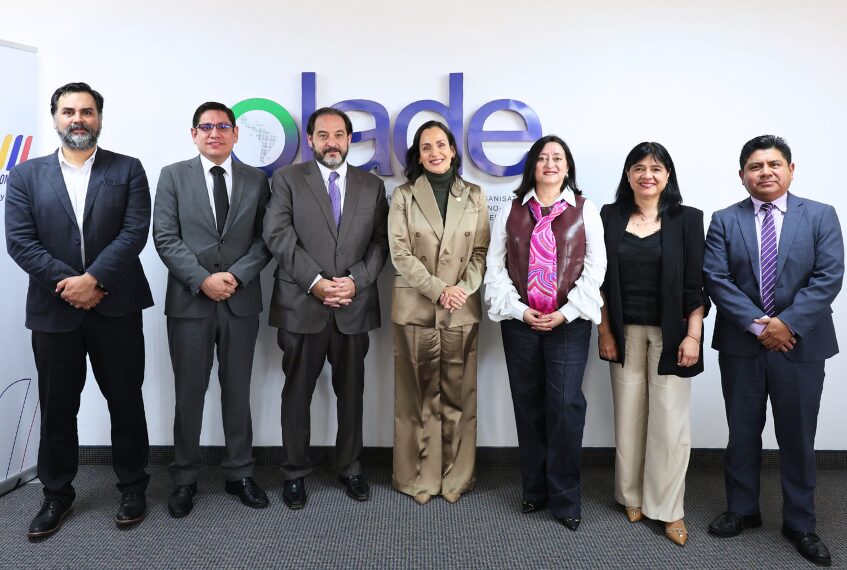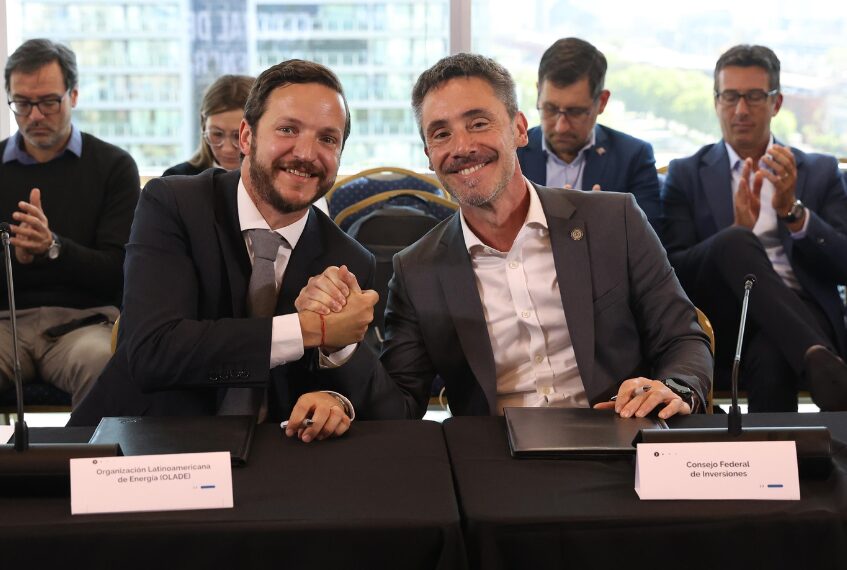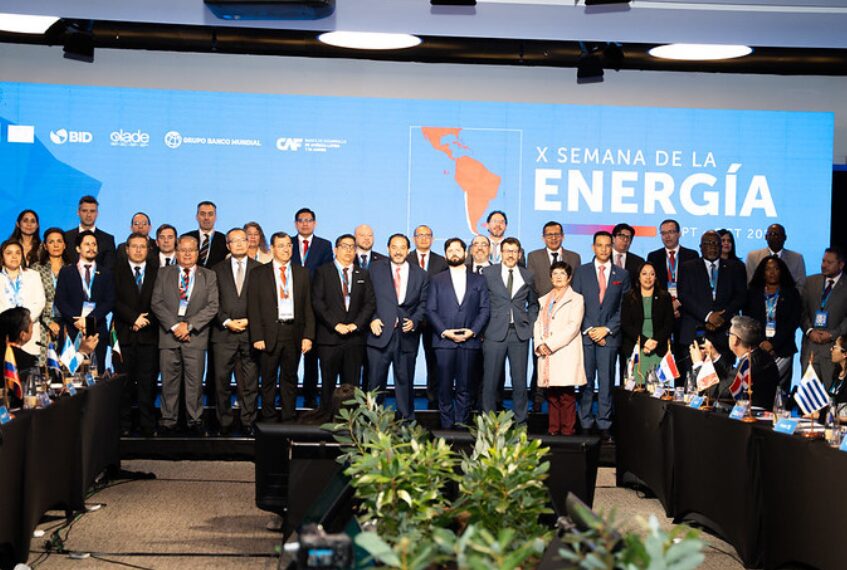The headquarters of the Latin American Energy Organization (OLADE) in Quito hosted the seminar “Energy Transition: The Chilean Experience and Its Contribution to the Regional Debate,” a meeting that brought together authorities, experts, and representatives of the energy sector from across Latin America and the Caribbean to exchange experiences on the transformation processes toward a cleaner and more sustainable energy matrix.
The event, jointly organized by the Embassy of Chile in Ecuador and OLADE, aimed to strengthen regional dialogue on energy transition issues, highlighting Chile’s progress and the shared challenges faced by countries in the region in developing secure, efficient, and low-emission energy systems.
The session was inaugurated by OLADE’s Executive Secretary, Andrés Rebolledo; the Ambassador of Chile to Ecuador, Carola Muñoz; and the Ecuadorian Minister of Environment and Energy, Inés Manzano, who underscored the importance of technical and political cooperation to accelerate decarbonization in Latin America and the Caribbean.
During the event, OLADE’s Executive Secretary, Andrés Rebolledo, emphasized the organization’s integrative and cooperative vocation, noting that since its foundation, one of OLADE’s fundamental pillars has been to promote South-South cooperation and the exchange of experiences among its member countries.
“Activities like this one fully represent our vision, as they allow us to learn from each other’s experiences and strengthen regional ties,” he added.
For her part, Ambassador Carola Muñoz remarked, “Our presence here seeks to share experiences with honesty and transparency, offering a sincere perspective on Chile’s progress, as well as the challenges it has faced in its energy transformation process.”
Meanwhile, Minister Inés Manzano stressed that “the energy transition is a decisive issue for Ecuador. We are advancing in geothermal, nuclear, and natural gas energy, prioritizing water and biodiversity as the cornerstones of sustainable development. Energy is a right and must be accessible to all.”
The seminar featured high-level presentations, including that of Marta Cabeza, Chile’s Superintendent of Electricity and Fuels, who highlighted Chile’s progress and challenges on its path toward carbon neutrality by 2050, underscoring the state policy approach that has guided this process since the publication of the first National Energy Policy in 2015. Cabeza emphasized that Chile “knows where it is going and works with clarity on how to reach that goal,” relying on robust public policy instruments that provide regulatory certainty and outline a clear path toward a fair and participatory transition that brings together efforts from the public, private, and academic sectors.
Javier Iza, Ecuador’s Undersecretary of Electricity Generation and Transmission, presented the country’s progress and challenges in the energy transition, highlighting Ecuador’s commitment to decarbonizing its energy matrix and diversifying technologies to strengthen national energy security and sovereignty. He noted that Ecuador aims to reach over 80% of electricity generation from renewable sources by 2032, integrating hydroelectric, solar, wind, geothermal, and bioenergy projects. Iza also emphasized the development of a modern regulatory framework that promotes private participation, energy efficiency, and the gradual incorporation of storage and distributed generation—essential pillars to ensure a safe, sustainable, and resilient power system in the face of future climate and demand challenges.
Finally, Dr. Rodrigo Moreno, from the University of Chile, presented the Participatory Long-Term Energy Planning (PELP) Methodology, highlighting the Chilean model as a regional example of inclusive governance and planning. He explained that this legally mandated process, conducted every five years, combines technical evidence, citizen participation, and forward-looking vision to guide the transition toward a secure, resilient, and low-carbon energy system, projecting more than 96% renewable generation by 2050. Moreno emphasized that the integration of science, institutions, and civil society has been fundamental to the legitimacy and success of Chile’s model.
Throughout the day, participants emphasized the need to strengthen regional cooperation, promote investment in renewable energy, enhance regulatory frameworks and technological innovation, and advance toward regional electrical integration to enable the sharing of resources and capacities.
The meeting concluded with a joint call to continue consolidating the role of Latin America and the Caribbean as a global benchmark in clean energy. According to OLADE studies, the region ranks among those with the highest share of renewable energy in its electricity matrix, reaching approximately 70% renewable generation in 2024, compared to 30% worldwide.
Watch the full seminar at the following link: https://www.youtube.com/live/1lgko4Xd1yU




